IEEE-Madison Section February Newsletter

 |
Madison Section NewsletterNewsletters are archived online at IEEE-Madison Web Site. |
| Vol. 22, No. 2 | Serving IEEE Members of South Central Wisconsin | February 2019 |
-
February Section Meeting: "Cybersecurity: Protect Your Digital Assets"
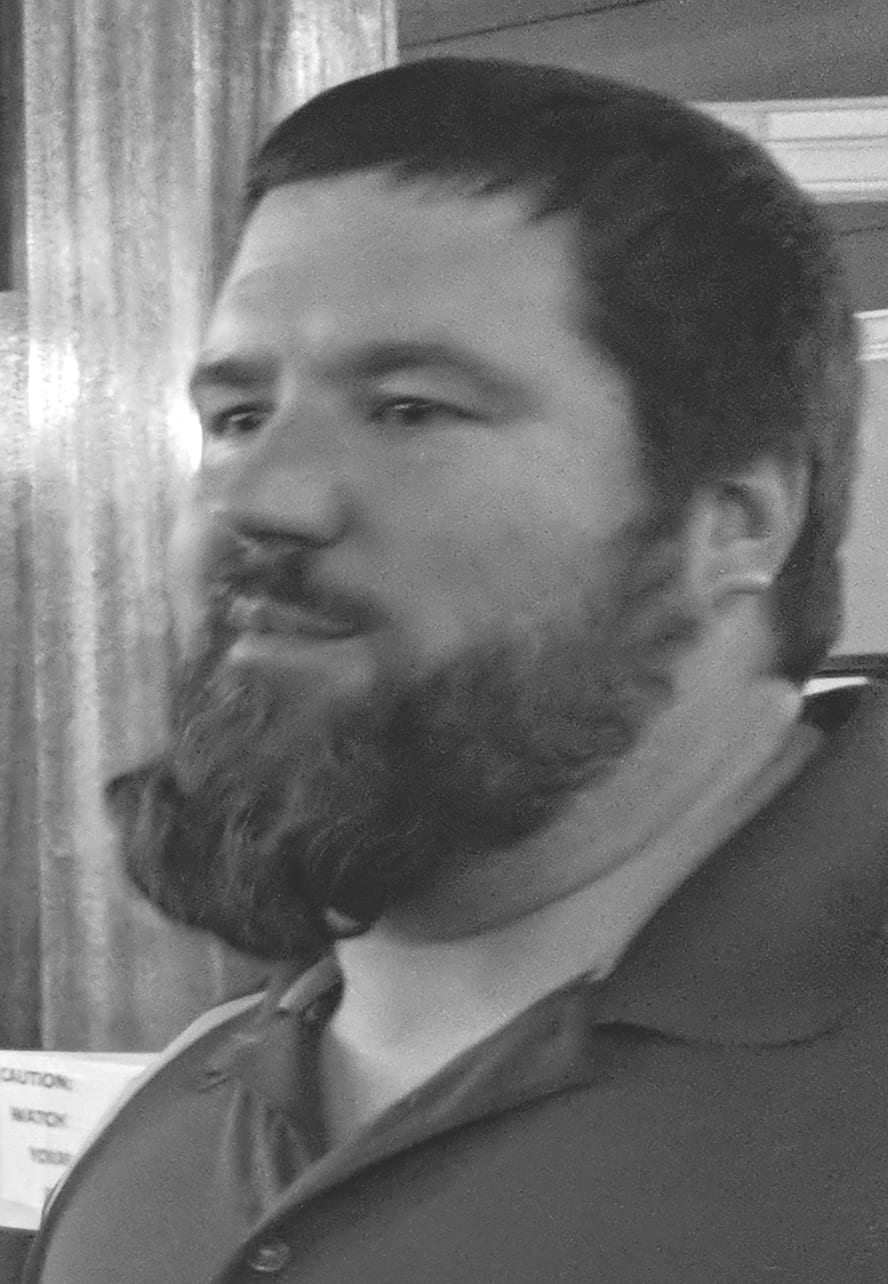
- Thursday, February 21st, 5:00-7:00 PM
- Speaker: Nate Toth, Alliant Energy
- Location:
TBD -- Look for a eNotice from IEEE soon - Please Register at the IEEE-Madison event page.
Presentation Title: Cybersecurity and You: Recommendations on Protecting Your Personal Digital Assets
Talk: Nathan Toth, Chair of IEEE Madison, will make a presentation on how you can stay safe online and on your home computers, and how you can protect your digital assets. The threats present against you and your digital assets are serious. But as we become more connected to the world, as our information moves to the cloud, and as our personal identities are further connected to our digital lives, the importance of safeguarding those assets becomes more crucial. Discussed will be tips on how to make sure you can browse the internet safely, how you can protect your computer from malware, how to protect social media accounts, and how to avoid scams and fraud.
Bio: Nathan works as a IT Security Systems Administrator at Alliant Energy, and is very experienced in network security, firewalls, defending against internet based threats, and maintaining safe computer systems. He is a 2007 graduate from Herzing College with a degree in Computer Science, is ISC2, CompTIA, and Cisco certified, and broad experience in securing networks and systems of all sizes.
Details on the date, time, and location will be in an upcoming eNotice from IEEE Madison.
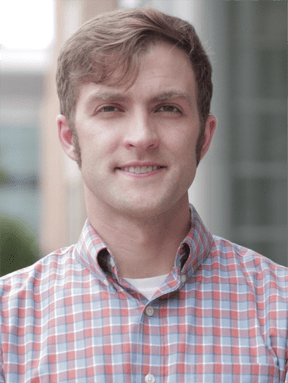
- Wednesday, March, 13th 11:30 AM - 1:00 PM
- Speaker: Eric Severson, UW-Madison CoE
- Location:
Engineering Hall
Room: TBD
1415 Engineering Drive
Madison, Wisconsin 53706 - Please Register at the IEEE-Madison event page.
- Lunch will be Pizza; $5 members, $10 non-members, Students Free
Talk:
- We each interact with no fewer than a dozen different electric motors every day. These electromechanical devices have become fundamental to our existence, pumping the water we drink, generating the electricity we use, aiding in heating and cooling our homes, and even providing our means for transportation. Electric motors are estimated to consume 45% of global electric energy, making them the single biggest consumer of electric power and an important technology to target for efficiency improvements in an effort to decrease our global energy footprint. Typically the first point of failure in electric motors, and a source of significant energy loss, is the bearing system used to support the motor's shaft.
- This talk will investigate using magnetic levitation to eliminate bearings from motor systems and create ultra-efficient, high speed, "bearingless" motors. This technology is specifically targeted towards overcoming obstacles in bearingless motor technology so that it can be used in large systems across the industrial and energy sectors where it has the potential to offer tremendous energy savings, size reductions, and intelligent, self-monitoring capabilities. A new type of motor winding technology, referred to as "dual purpose no voltage" windings, is proposed to overcome critical challenges that limit the efficiency and manufacturability of legacy bearingless motor systems. The proposed windings are able to re-use the electric motor's coils to create magnetic levitation forces on the shaft in addition to torque. The end result is a highly integrated, electromechanical device that is easy to manufacture and uses little raw material.
Bio:
- Eric Severson received the B.Sc. and PhD degrees in electrical engineering from the University of Minnesota in 2008 and 2015, respectively. He worked as a post doctoral researcher at the University of Minnesota from 2015 to 2016. He then had a brief stint in industry as a principal electrical engineer at McMillan Electric Company. Dr. Severson joined the University of Wisconsin-Madison in August 2017 as an assistant professor. He is a fellow of the Grainger Institute for Engineering and associate director of the internationally recognized Wisconsin Electric Machines and Power Electronics Consortium (WEMPEC). His research interests include bearingless electric machine design, power electronics, and flywheel energy storage.
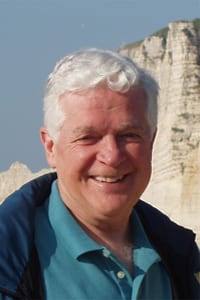
- Thursday, March 21st, 11:30 AM - 1:00 PM
- Speaker: Richard Stevees, MD, PhD of RethinkingNuclear.org
- Location:
Sequoya Public Library
Meeting Room B
4340 Tokay Blvd.
Madison, Wisconsin 53711 - Please Register at the IEEE-Madison event page.
- Lunch Meal Donation (Suggested): Members: $5, Guests: $10, Students: Free
Talk:
- Dr. Steeves will review fission, actinides, fission products, and a comparison of thorium with uranium, especially with regard to thorium’s use in molten salt reactors instead of light water reactors. His remarks are directly relevant to our concept of nuclear waste, which is so badly misunderstood by the media and most of the public
Bio:
- Dr. Richard Steeves is an Emeritus Professor of Radiation Oncology at the University of Wisconsin School of Medicine with interest in reducing carbon dioxide emissions and the severity of future climate change. Since 2010 he has been leading a discussion group, called “Pathways to a Sustainable Planet”, for the University’s Participatory Learning and Teaching Organization. His experience in handling X-rays and radioactive isotopes, both in the USA and at the Curie Institute in Paris, prepared him for delving into the potential benefits of atomic energy for solving our impending climate crisis. Cleaning up our generation of electricity is a good way to start, for transportation as well as for home and industrial use. Richard drives an electric car and flies an electric airplane. He would much rather plug into a grid like Illinois’ than Wisconsin’s, and he believes we will need more than renewable energies to accomplish this.
-
Section News
- Volunteers Needed: Are you interested in volunteering? If so, IEEE Madison is looking for a few people interested in a few exciting new volunteer positions.
First, the Executive Committee is looking to fill a new position of auditor. This position will work with the Treasurer and the Executive Committee to review all expenditures and ensure that IEEE Madison remains compliant with all IEEE policies and procedures, as well as applicable laws. The auditor will also serve on the Finance and Audit committee. If you are interested and wondering how much time this volunteer position will require, it is estimated that it will be at most a couple hours per month. If you are interested, please contact Nathan Toth, IEEE Madison Section Chair, at tothnj@ieee.org.
Secondly, IEEE Madison will be forming an Ethics Committee. The purpose of the Ethics Committee will be to foster awareness of ethical issues, promote ethical behavior among members of IEEE Madison, and advise the Executive Committee on IEEE Ethics policy and concerns. The Ethics Committee will consist of 3 or more members of IEEE. For those interested in volunteering for the ethics committee, please contact Nathan Toth, IEEE Madison Section Chair, at tothnj@ieee.org. The time commitment for this committee will be approximately 2 hours per month.
Volunteering for IEEE Madison helps to grow a community of engineers, scientists, and technologists in the Madison area.
If you are interested in any of the above positions or are interested in volunteering for any other position or task, please contact Nathan Toth at tothnj@ieee.org. - Renew your IEEE Membership: It is that time of year to renew your IEEE Membership and help support the Madison Section. A portion of your dues goes to financially support the Section, allowing us to host events with little or no cost to members. To renew your membership, click on this RENEW NOW link.
- First Tech Challenge Donation to Sector67: Chris Meyers writes: "A little belated, I wanted to send a THANK YOU! for your generosity in sponsoring our FIRST Tech Challenge robotics team this year. We participated in the regional competition in Appleton two weeks ago and the students had a great time. We were able to bring 3 students to the competition, with roughly 6-8 students working on the robot at various points in the construction. They participated for the first time in the competition and learned a lot! The students are all excited at the opportunity to compete again next year, and are looking forward to improving on what they learned this time around. Ultimately we placed 12th of 14 teams, and with a little driving experience before the first time in the competition we expect to boost performance next year :-) They were able to program the robot to complete some objectives in the 30 second autonomous period that scored a lot of points, as well driving remotely to score some more points and help their partners. In short, I wanted to thank you for your donation to support the team, I look forward to updating you on next years progress! "
Web Site: East High
Pictures:First Tech Challenge
Autonomous mode video: Here - Review of January Section/LMAG EMB Meeting: Dr. James Lattis presented an interesting historical talk on the significant development of electronic light measurement instrumentation and techniques for astronomical observations. Prior to electronic measurements, a system of comparative visual observation was used to rank the brightness of astronomical objects, particularly stars. Later, photographic emulsions were able to characterize object brightness, but measurement was tricky due to variations of emulsions and non-linear effects in exposure.
Enter the electronic age. In 1894, a selenium photocell was first used to measure astronomical light intensity, but sensitivity was limited. In about 1907, George Stebbins at the University of Illinois used a chilled selenium photocell and sensitive galvanometer to measure astronomical objects, with the first accurate measurements of the variation of light from the orbiting binary star system named Algol. With and estimated accuracy of 2%, this was much better than visual or photographic measurements.
After the discovery of the photoelectric effect, Professor Jacob Kunz at the University of Illinois was able to make tubes with a metal-hydride cathode and argon gas that achieved a modest ionic amplification. The result was an instrument that had better than 0.4% sensitivity, better noise performance, and very fast recovery time when coupled to a string electrometer for readout. Stebbins brought the Photoelectric Photometry (PEP) technology to the University fo Wisconsin in 1922 and continued to develop it here. The Kunz tube design was improved and coupled to GE electrometer tubes, immediately improving sensitivity by a factor of 4 or more. This Kunz tube/Whitford amplifier was the best scientific light detector available until after WW2. Washburn Observatory alone was producing good science with them and training other astronomers in PEP. Washburn continued the advance of PEP with the addition of the photomultiplier tube in 1936 and later added image intensifier tubes.
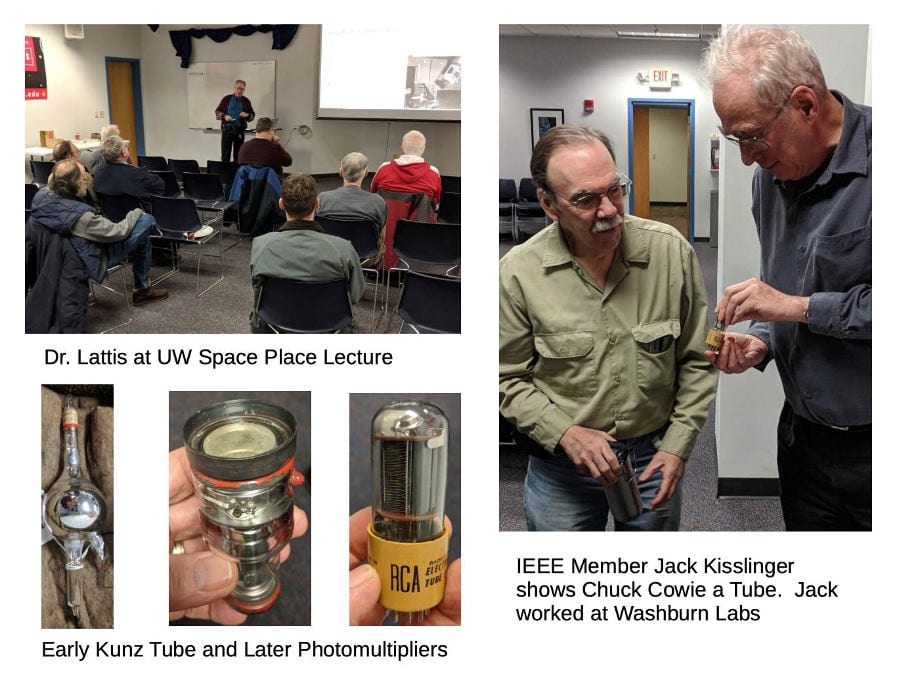
- Review of January (cancelled) February 12th (rescheduled) ECN Meeting: The "Polar Vortex" hit causing the initial meeting cancellation. A rescheduled meeting at Sector67, held on February 12th reviewed the presentation and discussed the results. Though it looks like the device is ready for any HVAC technician to install, the general consensus among those attending was that they were not convinced Rossi had a real device. Most present wanted independent confirmation of the extraordinary results. The presentation is available at this link.
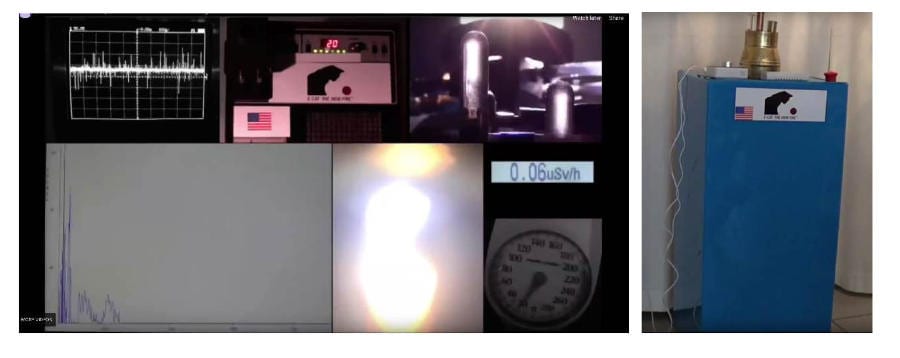
-
Upcoming Meetings
- Follow us on Facebook: https://www.facebook.com/IEEEMadison
- IEEE-Madison Section Meeting: Nate Toth, our newly elected IEEE Section Chair has prepared a talk on security issues aimed at the average user of computers in this Internet Age. Professioally, Nate is responsible for identifying security issues at Alliant and spends much of his professional time preventing attacks on commercial systems. His talk is aimed a giving the average user information on how to protect personal data. At Newsletter Press time, the location was not confirmed. Watch for a soon-to-follow eNotice with the specifics.
- Joint PES-IAS/LMAG Meeting: For the first tie, the newly formed PES-IAS Chapter is collaborating with the Life Member Affinity Group to hold an informative meeting on magnetic bearings. Eric Severson, newly elected Vice Chair of the Madisn IEEE PES-IAS Chapter will be the speaker. Come and socialize and meet the leaders of the PES-IAS and LMAG groups prior to the talk. Watch for future IEEE eNotices for the room assignment.
- IEEE-Madison Section Meeting: Richard Steeves will discuss issues of producing low-carbon content energy by using new nuclear reactor designs. Thorium is proposed as a new reactor fuels. In the process of using Thorium, you can also utilize the remaining energy content in spent nuclear fuel while reducing the stockpile of nuclear waste.
-
Regular Meetings
-
Section Meetings
The third Thursday of January through May, and September through December is reserved for a meeting to provide recent research, developments, trends and/or innovations in one of our membership's technical areas. -
Life Member Affinity Group
The first Thursday of January, March, May, September and November is reserved for a meeting on a topic selected from a broad range including such areas as technology, science, history, culture and leisure. -
IEEE-MSN-ECN Networking Meetings
- Purpose: Presentations, Discussions, networking
- Date: First Thursday of even-numbered months
- Time: 11:45 AM to 1:00 PM
- Location: Varies
- Process: Members are encouraged to make introductions, describe endeavors, and make request for: contacts in target companies, needs, resources.
-
Membership Upgrades
Those interested in upgrading their IEEE membership level should send their resumes or other information showing five years of significant performance in an IEEE-designated field to Charles J Gervasi via email at cj(at)cgervasi.com. Madison Section Board will attempt to find Senior IEEE members knowledgeable in the applicant’s area of practice who may be able to provide references. You are invited to attend the informal networking portion of the monthly Section meetings (starting at 11:30am) to meet the Section Board members and discuss intentions.
-
About IEEE
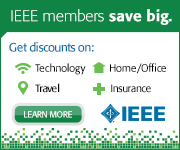
- The Institute of Electrical and Electronics Engineers or IEEE (read Eye-Triple-E) is an international non-profit, professional organization dedicated to advancing technology innovation and excellence for the betterment of humanity. IEEE and its members inspire a global community through IEEE's highly cited publications, conferences, technology standards, and professional and educational activities. It has the most members of any technical professional organization in the world, with more than 300,000 members in around 150 countries. The IEEE consists of 38 societies, organized around specialized technical fields, with more than 300 local organizations that hold regular meetings. Discover what IEEE Member Discounts can offer you. The Member Discounts portfolio consists of insurance products and programs for the home, office and travel, all at excellent group rates and reduced pricing. Visit IEEE Member Discounts to see what’s available in your location and enjoy the savings. For more information, please visit:
-
Madison IEEE Section
The IEEE-Madison Section of the IEEE is a section in Region 4 of the IEEE-USA organized to serve IEEE members in the Madison, WI area with over 600 members. The 2017 Officers and Board Members are Nate Toth - Chair, Hugh Schmidt - Vice Chair, Tom Kaminski - Treasurer, Michael Stemper - Secretary, Nate Toth - Webmaster, Tom Kaminski - ECN Chair, Dennis Bahr - Engineering in Medicine and Biology Chapter Chair, San Rotter - Life Member Affinity Group Chair, Chuck Cowie - Life Member Affinity Group Vice Chair, Scott Olsen - Membership Development Chair, Dan Ludois - PES-IAS Chair, Eric Severson - PES-AIS V ice Chair, Michael Stemper - PES-IAS Secretary/Treasurer, Members at Large: Clark Johnson, Craig Heilman, Dennis Bahr, Sandy Rotter. -
Sponsored Content
DLSEMC: We See You Through!
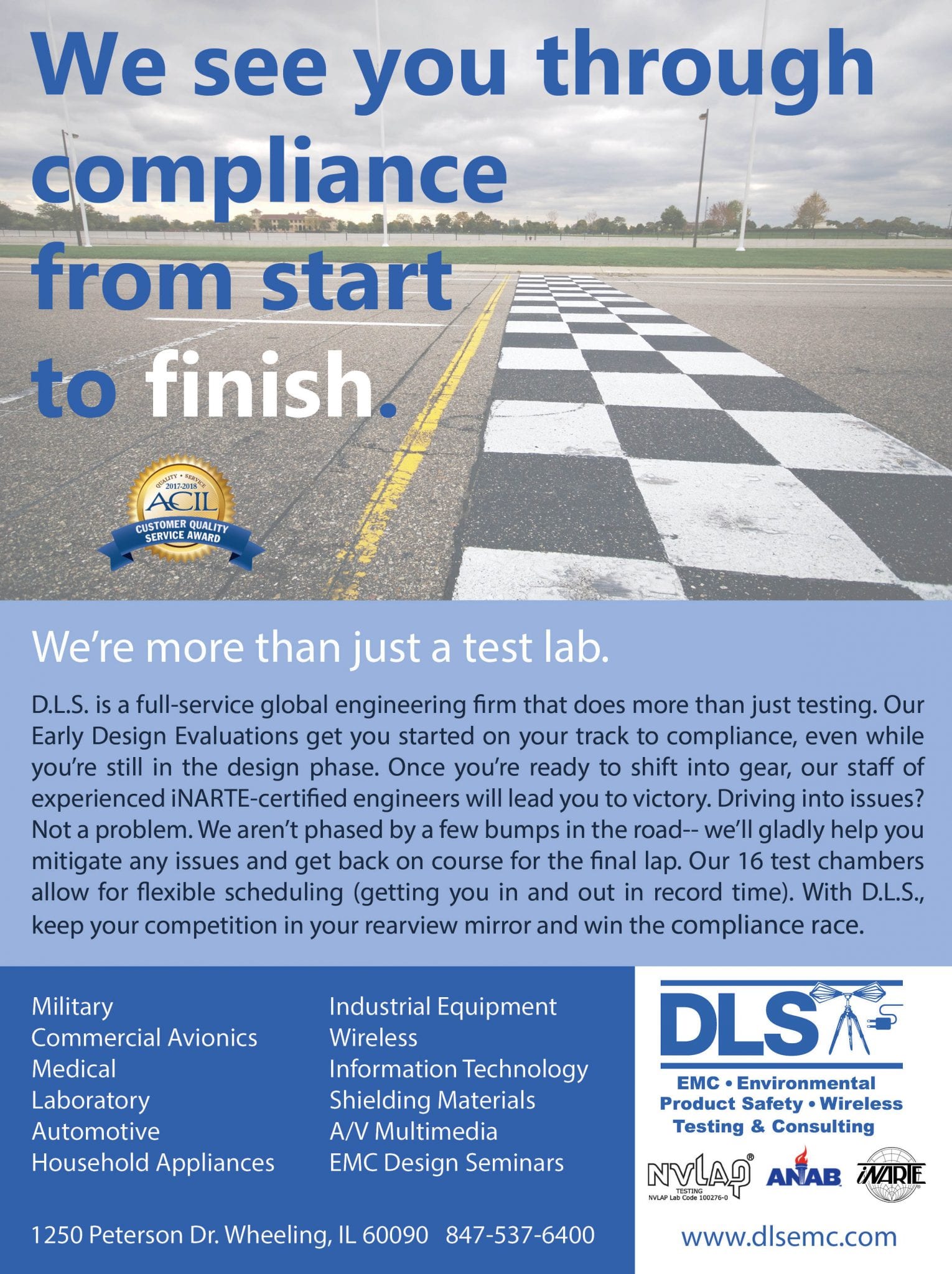
- The IEEE-Madison Section has a number of volunteer positions open if you are interested in helping out. Please direct any questions or comments to Tom Kaminski (Newsletter Editor) via email to tjkaminski(at)ieee.org.

